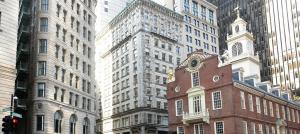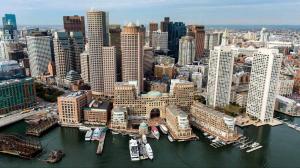The Building Emission Reductions and Disclosures Ordinance (BERDO) forces Boston's large buildings to reduce emissions
The city of Boston passed an update of the BERDO law, enforcing landlords to increase their building’s energy efficiency.
BOSTON, MASSACHUSETTS, UNITED STATES, November 4, 2022 /EINPresswire.com/ -- The city of Boston recently updated the existing Building Emission Reductions and Disclosures Ordinance regulation (BERDO). This law amendment forces landlords to increase their building’s energy efficiency, purchase carbon credits to offset emissions, and report on their progress toward net zero emissions. This article provides a BERDO summary, in order to help owners to improve their efficiency and understand how the BERDO law affects them.This will require owners to improve their energy efficiency and acquire carbon credits.
On the contrary, owners will face substantial financial penalties from 2026 onwards. The new ordinance has established a strict timetable requiring all affected buildings to meet a series of emissions targets from 2025 that will make them carbon neutral by 2050.
These targets are set at five-year intervals and by building type to ensure that decarbonization projects stay on track. Building owners will do their part by submitting an emissions reduction plan outlining how their property will meet its targets. For example, owners can achieve carbon neutrality by making energy efficiency improvements, switching from gas to electric heat, and incorporating clean energy systems such as solar.
Therefore, it is necessary that the changes are adopted progressively from now on in order to comply with the legislation.
The main objective of the BERDO law is to encourage effective structure operation, reduce emigrations of air adulterants from energy products, and stimulate a growing green frugality.
But does this law affect you?
Possessors of large marketable and multifamily domestic structures are needed to comply with the law, taking into account the following aspects:
Residential buildings that are 35,000 square feet or larger, or have 35 or more units.
Nonresidential buildings that are 35,000 square feet or larger.
Any parcel with multiple buildings that sum to 100,000 square feet or 100 units.
Buildings that fail to meet the reporting standard will face fines of between $150 and $300 per day, depending on the size of the building. Non-compliance with accurate emissions reporting will be penalized with monetary penalties ranging from $1,000 to $5,000.
Reducing carbon emissions from buildings will need landlords and regulators to collaborate on policy development. Surveillance and discipline backed by the legal authority of the newly passed laws will help the Commonwealth remain a leader in the fight against climate change.
BERDO 2.0 will clearly have significant implications for many of Boston's building owners - including broadening the definition of covered buildings to capture smaller properties, forcing new performance standards and penalties, and creating an entirely new regulatory entity.
Boston has managed to accomplish a good job of implementing and documenting the program.
Additional information can be found at https://www.berdohelp.com/berdo-summary.
Cal Mitchell
BERDO Help
+351 911 887 206
info@sqlpipe.com
Legal Disclaimer:
EIN Presswire provides this news content "as is" without warranty of any kind. We do not accept any responsibility or liability for the accuracy, content, images, videos, licenses, completeness, legality, or reliability of the information contained in this article. If you have any complaints or copyright issues related to this article, kindly contact the author above.


